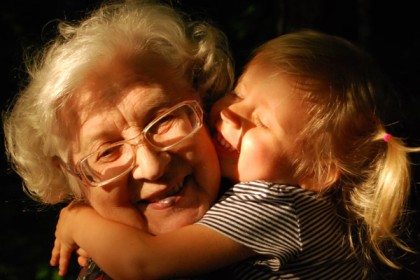Table of Contents
Describe An Interesting Conversation You Had With a Very Old Person

Cue Card
You should say:
- Who this person is
- Where and when you had the conversation
- What you talked about
- And explain why you think it was interesting
Sample Answer 1
Sure, let me share an interesting conversation I had with my grandmother not long ago. We had this conversation at her house during a family gathering.
My grandmother, whom we affectionately call Granny, shared fascinating stories about her youth and experiences growing up. She talked about the era she lived in, the changes she witnessed, and how life was so different back then. The conversation took a nostalgic turn when she described her adventures, the close-knit community she was a part of, and the simpler lifestyle they embraced.
The stories ranged from amusing anecdotes to more serious reflections on life lessons. She spoke about resilience, the value of relationships, and the importance of appreciating the little joys in life. It was a heartwarming and insightful conversation that provided a glimpse into a bygone era.
I felt a deep sense of connection and appreciation for my grandmother’s wisdom. Hearing about her life not only brought our family history to life but also made me reflect on the rapid changes in society. The conversation left me with a renewed sense of gratitude for the experiences of the older generation and a realization of the importance of preserving and passing on these valuable stories to future generations. Overall, it was a meaningful and enjoyable conversation that I will cherish.
Sample Answer 2
One of the most interesting conversations I’ve had was , with my elderly neighbour, Mr. Zhang. He has lived in our small village for as long as I can remember and has witnessed many changes over the years.
We had this conversation last summer during one of my evening strolls. I bumped into Mr. Zhang in the village square, and we started chatting. Little did I know that this conversation would turn out to be so engaging.
As we sat on a bench, Mr. Zhang began sharing his life experiences and memories from the past. He talked about the village when it was still predominantly agricultural, and how people had to go “up the mountains and down to the countryside” during the Cultural Revolution. His stories painted a vivid picture of the hardships and joys they faced.
What made this conversation truly fascinating was Mr. Zhang’s wisdom and perspective. He had seen the village transform from a simple farming community to a bustling town. He shared his thoughts on the changes, both positive and negative, and how they had impacted the lives of the villagers. It was like getting a glimpse into history through his eyes.
Throughout the conversation, Mr. Zhang also imparted valuable life lessons. He spoke about the importance of hard work, resilience, and the value of human connection. He emphasised the significance of cherishing the simple pleasures in life and finding joy in the little things. His words resonated deeply with me and made me reflect on my own life choices.
Overall, this conversation with Mr. Zhang was not only interesting but also enlightening. It allowed me to gain a deeper understanding of the village’s history and the resilience of its people. It was a reminder that there is so much we can learn from the older generation, and their wisdom and perspective can provide valuable guidance in our own lives.
Part 3
1. How do people have a conversation with an elderly person?
Having a conversation with an elderly person often involves more listening than talking. It’s important to show respect and patience, giving them time to express their thoughts and feelings. Elderly people have a wealth of experience and stories to share, and actively listening to them can be both enlightening and respectful. It’s also helpful to speak clearly and at a moderate pace, as some may have difficulty with hearing or processing information quickly. When conversing, choosing topics that are relevant and interesting to them, such as their past experiences or hobbies, can lead to more engaging and meaningful interactions. Being empathetic and showing genuine interest in their opinions and stories fosters a connection and makes the conversation more enjoyable for both parties.
2. What can young people learn from old people?
There’s a wealth of wisdom young folks can soak up from the older generation. For starters, old people often have a treasure trove of life experiences. They’ve seen the highs, the lows, and everything in between. They can teach resilience, patience, and the art of taking the long view on life’s problems.
Plus, their stories are a living history lesson – they provide insights into a world that’s changed radically over the decades. It’s like getting a firsthand account of history in motion.
3. Do you think old people can work better than young people?
It’s not accurate to generalize that elderly people can work better or worse than younger people, as it largely depends on the nature of the work and the individual’s abilities. Elderly individuals often possess valuable experience, wisdom, and a strong work ethic, which can be advantageous in certain roles. They may excel in positions that require knowledge, patience, and life experience. However, physically demanding jobs or roles requiring up-to-date technical skills might be more suited to younger individuals.
4. What are the advantages of having people of different ages living in the same house?
Living in a multi-generational household where people of different ages reside together offers numerous advantages. One of the main benefits is the vibrant and dynamic environment it creates. Each age group brings its own unique experiences, perspectives, and energies, leading to a lively and diverse home life. This intergenerational interaction can spark interesting and enriching conversations, fostering a deeper understanding and appreciation of different viewpoints and life stages. It also offers the opportunity for mutual support and learning. For example, older family members can share their wisdom and life experiences, while younger members can help with technology and new trends. This setup can lead to a strong sense of community and belonging within the family, promoting emotional support and a feeling of connectedness.
5. Has old people’s life quality improved when compared to the past?
The quality of life for elderly people has indeed seen significant improvements compared to the past. Advances in healthcare have greatly increased life expectancy and the management of chronic conditions, allowing older individuals to lead healthier and more active lives. The availability of senior-friendly technologies and services has also enhanced their independence and engagement with society. Social attitudes towards aging have evolved, with more emphasis on the dignity and contributions of older adults. Additionally, there’s been an increase in recreational and educational programs specifically designed for seniors, which enrich their social lives and mental well-being. All these factors contribute to a higher standard of living for the elderly today than in previous generations.
6. Do old people share the same interests as young people?
Generally, old and young people tend to have different interests, largely due to generational differences in experiences and lifestyles. However, with the advent of technology, particularly social media, there’s been an interesting shift. Nowadays, many elderly people are also engaging with platforms like TikTok, where they watch and sometimes create videos. This crossover in interests, particularly in digital entertainment, is bridging the gap between generations. While there are still distinct preferences in activities and hobbies, areas such as technology and social media are becoming common ground for both old and young, facilitating shared experiences and understanding.
Some IELTS Speaking part 2 cue-cards you may like :
- IELTS Speaking Part 1 From January to April 2024
- IELTS Speaking Part 2 From January to April 2024
- (2024) Describe Something You do To Help You Work Or Study
- (2024) Describe a Job That you Do Not Like To Do In The Future
- (2024) Describe a Time When You Helped Someone
- (2024) Describe An Unusual Holiday/ Vacation You Had
Credits
Image : Photo by Ekaterina Shakharova on Unsplash


